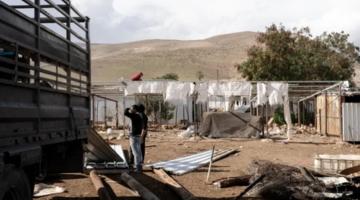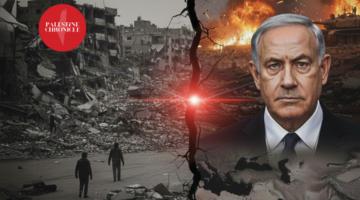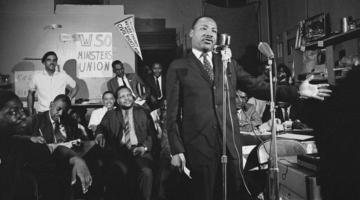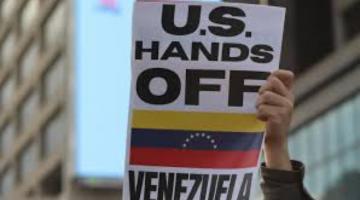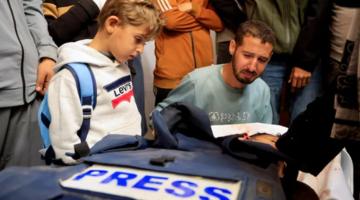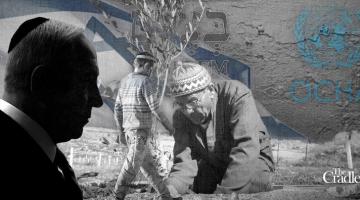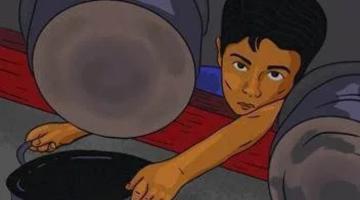In this series, we ask acclaimed authors to answer five questions about their book. This week’s featured authors are Lara Sheehi and Stephen Sheehi. Lara Sheehi is an Assistant Professor of Clinical Psychology at the George Washington University Professional Psychology program. Stephen Sheehi is the Sultan Qaboos Professor of Middle East Studies and Director of the Decolonizing Humanities Project at William & Mary, where he is also Professor of Arabic Studies in the Asian and Middle East Studies Program, Arabic Program, and Asian and Pacific Islander American Studies Program. Their book is Psychoanalysis Under Occupation: Practicing Resistance in Palestine.
Roberto Sirvent: How can your book help BAR readers understand the current political and social climate?
Lara and Stephen: The book platforms the commitment of Palestinian clinical psychologists and their work with Palestinians throughout Palestine, from Haifa to Gaza to Jerusalem and Bethlehem. The settler colonial, apartheid state now known as Israel is an overlay and imposition on Palestine. Therefore, this book gives voice to how the practices and political commitments of Palestinian psychologists allow them to live under and in defiance of persistent apartheid and colonial violence.
Focusing on Palestinian psychologists, their personal lives and their professional practices allows us to focus on the material conditions of settler colonialism, which are purposely obfuscated by colonial powers and ideology. This obfuscation is with the active collusion of imperialist superpowers and racial capitalism. If Palestinian lives are even acknowledged, it is the language of psychology that is weaponized to depoliticize indigenous Palestine life, rendering their suffering as a byproduct of “conflict” and “war” without perpetrators, colonizers, or a settler-state.
Palestine is important for many reasons, not the least of which because we see in real time motion the ways in which settler-colonial regimes violently erase and dispossess indigenous populations often with brute force. This force is then legitimated through “logics” (or ideologies) of settler colonialism that resonate with the settler colonial ideology that structures racial capitalism in Turtle Island.
Against these logics, we map and animate the ways that Palestinian psychoanalytic clinicians deploy and work with psychoanalytic theory and praxis and, most importantly, resist against the pressures of normalization with the settler-colony to either be erased or become “legible” as only victims of generic trauma. More specifically, we highlight the ways that Palestinians enact willfulness, refusing “resilience” and “trauma” narratives of their experience because these models fail to attend to the source of suffering: settler colonial dominance and violence.
What do you hope activists and community organizers will take away from reading your book?
One of the most powerful take-aways has been how one remains militant in the face of extreme oppression. By militancy, we mean specifically: how does one remain clear in their political alignment towards liberation, despite continuous efforts at psychic intrusion and, of course, physical coercion and violence. But also, we mean how Palestinian life, joy, and community defy the hegemony of settler colonialism and apartheid. What emerged in our work alongside our Palestinian colleagues and comrades was an unbending refusal of settler colonial logics of being, i.e., in refusing the multiple reality-bending exercises that settler-colonial violence relies on. Concomitantly, their practice is a stalwart affirming of Palestinian life, sumud.
We feel this is especially important for activists, because under racial capitalism and the various oppressive systems in which we live, we are often expected to compromise in order to achieve our revolutionary goals of liberation. What Palestinians show is the immense psychological toll that compromise entails. More so, they map out for us the ways in which resistance is key to nourishing psychic health and wellbeing. Through the establishment of what we name “the psychotherapeutic commons”, Palestinians map out how communal networks of care can defy what otherwise might appear to be only asphyxiatory and non-contiguous settler colonial borders. Here, they teach us that while trauma and violence is absolutely a daily fixture, what is more important are the myriad of vibrant ways that the Palestinian polity makes and remakes life, life-worlds, and consistently commits to life-affirming practices in defiance of settler-colonial death traps.
These acts of resistance can be as small as seeing kids leading occupying forces through a hide-and-seek journey in their neighborhoods that are about to be forcibly demolished (see Nadera Shalhoub-Kevorkian’s work on this), or refusing to internalize the oppressor’s language, or unifying against state practices of forced normalization by maintaining networks of knowledge production that do not collude with the settler state.
We know readers will learn a lot from your book, but what do you hope readers will un-learn? In other words, is there a particular ideology you’re hoping to dismantle?
The most important thing that our book illuminates is the most simple, but powerful, reality on the ground: there is a place called Palestine, inhabited by indigenous Palestinians, the land of which runs from the Jordan River to the Mediterranean Sea. We are hopeful that the stories of Palestinian psychologists evince this. More specifically, through their quiet and demonstrative acts of communal support and willful refusal, we hope that people will begin to unlearn the “normativity” and/or “natural” violent psychic effects of settler colonialism and its disciplinary tactics, whether in the settler-colonies now known as the United States, Canada, New Zealand, Australia, Western Sahara, Northern Cyprus, Northern Ireland, or the state now known as Israel.
That is, we hope that readers will find an unrelenting critique and problematization of the discourses and practices—especially of psychoanalysis but also other approaches to Palestine—that might directly (through state support and/or legitimization) or unwittingly (through passively internalized ideology) stabilize settler colonial conditions. Through this approach, we are hopeful that we can continue to push up against what are thought to be “natural” contours, “normal” conditions of violence, and “expected” victims in their wake.
In this process of decentering oppressive conditions, we are also hopeful that we will communally practice centering Palestine and Palestinians, locking arms in a global solidarity struggle that fights for the liberation of Palestine.
Which intellectuals and/or intellectual movements most inspire your work?
Indeed, we approach the clinicians of Palestine as themselves organic intellectuals of the Palestinian struggle, actively producing knowledge and social practices that defy settler-colonialism by elevating, supporting, and uplifting Palestinian lives and futures. However, in a more classical sense, our book starts with Frantz Fanon as exemplary of what psychoanalysis looks like in the hands of a black anti-colonialist, Marxist revolutionaries fighting for the liberation of, what we now call, the Global South. We also rely on left wing black and brown intellectuals including Ignacio Martín-Baró, Nadera Shalhoub-Kevorkian, Lena Meari, Gloria Wekker, Sylvia Wynter, Kapono Ratele, Shahnaaz Suffla and Mohamed Seedat along with numerous decolonial, anti-colonial and black feminist activists and writers. More broadly, our work can be understood as falling under the umbrella of contemporary abolitionist frameworks which are largely concerned with dismantling and uprooting all systems that re-enact patterns of domination and coercion, whether through brute force, economically, or relationally.
Which two books published in the last five years would you recommend to BAR readers? How do you envision engaging these titles in your future work?
Foluke Taylor’s upcoming Unruly Therapeutic: Black Feminist Writings and Practices in Living Room (Norton, 2023)—Lara had the pleasure of reading this manuscript before it goes to print and it is a game-changer for the field of psychotherapy, and also, is a stunning and affect-laden exploration of black feminist possibilities for living and relating.
M. E. O’Brien and Eman Abdelhadi’s Everything for Everyone: An Oral History of the New York Commune, 2052-2072 (Common Notions, 2022)—an anti-capitalist, scifi, love letter to abolition in the form of oral narratives documented by the authors. A stunning account of revolutionary imaginaries, but also inevitabilities.
Garth Stevens and Christopher C. Sonn’s edited book, Decoloniality and Epistemic Justice in Contemporary Community Psychology (Springer, 2021)—a collection of chapters by leading liberatory practitioners and theorists largely from the Global South, taking up questions of theory and praxis.
In alignment with our political commitments as revolutionary internationalists and anarchists, our work is always in conversation and community with scholars who share our commitment to the world we want to enact, especially relationally. All three of these books are written by committed leftist scholars, activists and revolutionaries, all of whom we know personally and work alongside in various forms of organizing, community-making, and liberation struggle. In this way, our work and our world-making is enriched by their vibrant praxis of liberation, and, most importantly, their comradeship.
Roberto Sirvent is editor of the Black Agenda Report Book Forum.




